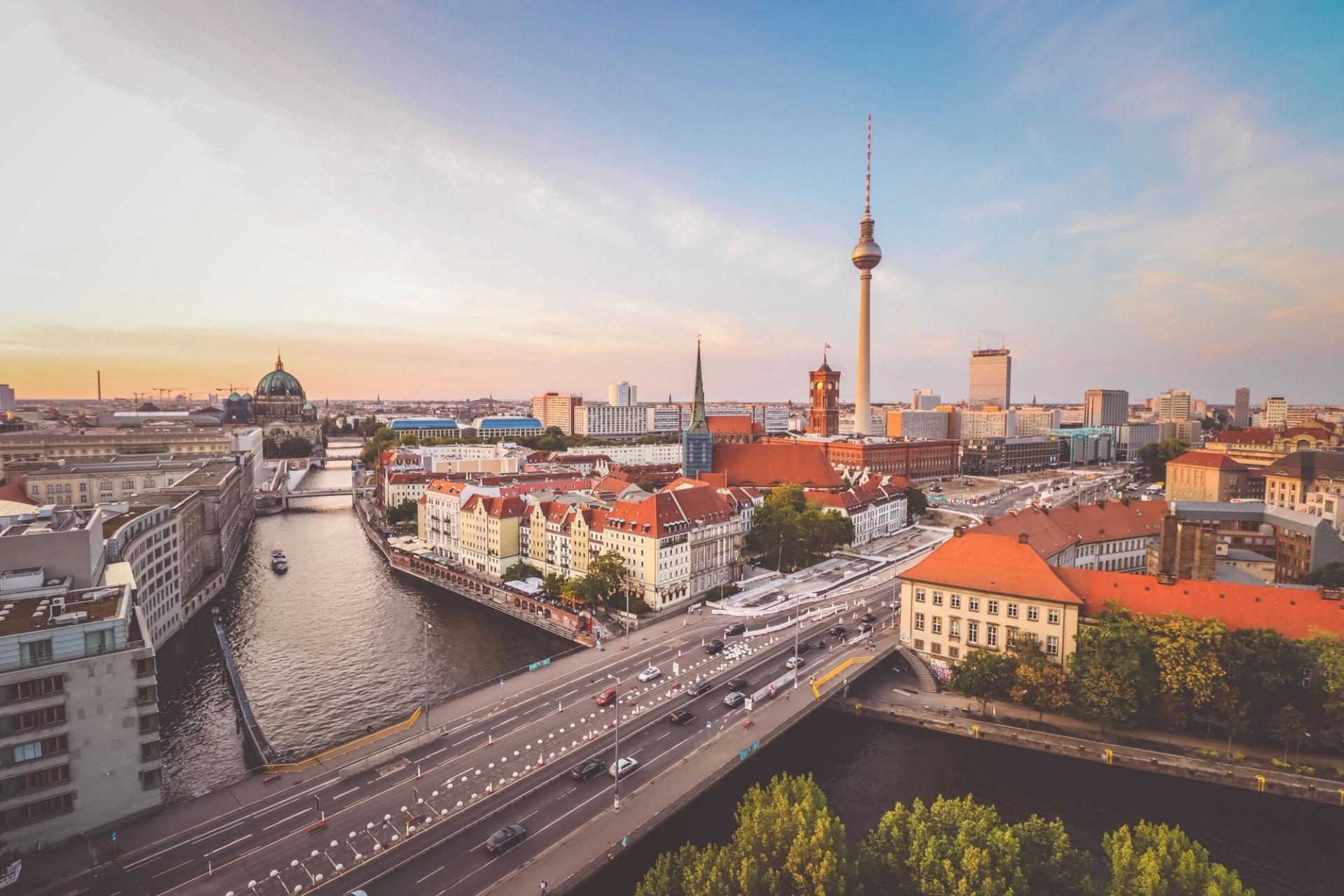The COVID-19 pandemic and German city centers
January 28, 2021
- New Insight

28.01.2021. Bonn, Darmstadt, Ingolstadt, Ulm - these are some of the cities that stand a good chance of recovering more quickly after the pandemic ends, despite the renewed lockdown. This is due to the fact that they combine a high degree of stability in the face of external influences with a strong socio-economic environment.
This is the result of a study by the consulting firm FTI-Andersch, which compared 52 major German cities on the basis of 19 individual factors.
Other cities in the group of those that associate stability in the face of external influences with strong environments include: Augsburg, Bamberg, Erlangen, Heilbronn, Karlsruhe, Münster and Saarbrücken.
The best result among the comparison cities was achieved by Bonn. As a business location with a large number of corporate groups and medium-sized companies, the city enjoys strong growth in economic and population figures. Purchasing power is high, the unemployment rate is low and the quality of life is very good. At the same time, the former federal capital is now not as dependent on trade fairs or tourism as other large cities, which significantly increases its resilience in the Corona pandemic.
Study of 19 specific factors to measure stability and socio-economic environment
In total, the consultants studied 19 factors per city that affect stability during the crisis and the socio-economic environment. Stability factors included metrics on cultural and recreational offerings, commercial property vacancy rates, digital maturity, the existence of a university, the number of tourists, and the number of trade shows - which directly impacted visitor frequency during COVID-19. The socio-economic environment includes factors such as economic performance, population growth, relevance as a catchment area, purchasing power, unemployment rate and quality of life.
Each of the 19 factors was rated from 1 (low) to 5 (high). These ratings are based on publicly available quantitative and qualitative data or data collected by FTI-Andersch.
Bonn received a 3.0 in this benchmark in terms of stability, and a 3.6 in the area of socio-economic factors. The city of Paderborn in eastern Westphalia had the highest stability (3.5), and Berlin the lowest (1.9). Based on the survey, Munich has the strongest socio-economic environment (4.0), and Trier the weakest (1.7).
The bottom group will have a harder time getting back on track after the crisis
The cities of Celle, Erfurt, Hildesheim, Leipzig, Lübeck, Mannheim and Trier, in particular, are more likely to suffer greater damage from the pandemic, as they lag behind as a group when stability and socio-economic environment are put into perspective.
"Of course, these are model calculations that cannot anticipate all the imponderables of the coming months," says Dorothée Fritsch, head of the study at FTI-Andersch. "However, it is foreseeable that especially those cities that rely heavily on external stimuli and at the same time offer a rather weak economic environment will have to overcome significantly greater challenges in the coming months. After all, if visitors stay away, local retailers, restaurateurs, and leisure and cultural venues will have no sources of revenue. If the expected bankruptcies occur in 2021, this will further worsen the socio-economic environment and local offerings. Mayors of these cities in particular should not underestimate the current situation and acute challenges, but look them in the eye - and consistently align their urban development to these new framework conditions."
New framework conditions must be accepted, strategy and measures adapted accordingly
FTI-Andersch has developed possible measures and structured them according to topics and time dimensions that cities should consider for further development. "In times of lockdowns and high viral incidence in the population, of course only a few operational development topics can be implemented," says Dorothée Fritsch. "But for the second half of 2021, many are now forecasting light at the end of the tunnel of this pandemic through vaccinations carried out by large sections of society. The current phase should be used to develop a strategy for the post-Corona period."
Even during the Corona period, especially after a possible end to the lockdown in the spring, it should be made easier to move sales areas outside and to make retail opening hours significantly more flexible. After that, the management consultants recommend a temporary simplification of public procurement law for faster implementation of public investment support measures, as well as the promotion of a digital infrastructure for small and medium-sized enterprises. To increase downtown visitor frequencies again after the pandemic, target group-specific activities and new event formats can be initiated, for example training fairs, product shows or family events. And many cities could further enhance the experience of visiting downtown by creating seating, public electrical outlets and Wi-Fi, more restrooms, pop-up bike lanes, and further improving the quality of stay. For vacant properties, interim leases can be considered as mini logistics hubs in downtowns.
Mike Zöller, partner at FTI-Andersch and retail expert, says: "Every city has very individual challenges, and some issues overlap. Despite the difficult situation, we recommend thinking about urban development in the long term even now, but still planning measures in realistic time dimensions and adapted to a new reality."
About FTI-Andersch:
FTI-Andersch is a management consultancy that supports its clients in the development and implementation of viable future/performance as well as restructuring concepts. FTI-Andersch becomes active in situations where companies have to deal with operational or financial challenges - or even well before, in order to align business model, organization and processes for the future at an early stage. A particular focus is the preparation of independent decision-making bases for intended (re-)financing.
Clients include, in particular, medium-sized companies and groups that operate internationally. FTI-Andersch is part of the internationally operating FTI Consulting Group (NYSE: FCN) with more than 5,500 employees.
Your Contacts
 Dorothée Fritsch
Dorothée FritschHead of Business Development & Strategy